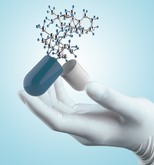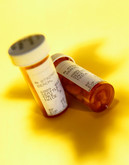Generics
Anti-competitive strategic patenting by pharmaceutical companies
Drug prices have considerably increased in recent years, affecting healthcare budgets and posing a serious risk to the affordability and accessibility of medicines for society [1]. Various reasons for high drug prices are put forward by pharmaceutical companies, including the complexity of drug discovery and development, as well as the expensive and lengthy regulatory procedures involved [2]. While these reasons may play an important role in this regard, some practices by pharmaceutical companies substantially contribute to this problem.
Biocon and Lupin launch generic tacrolimus capsules in US
India-based generics makers Biocon and Lupin have both launched generic tacrolimus capsules in the US.
New generics company to offer low-cost versions of high-cost generics
Billionaire Marc Cuban has launched a new generics company – Marc Cuban Cost Plus – which ‘is dedicated to producing low-cost versions of high-cost generic drugs’.
Generics applications under review by EMA – January 2021
Generic medicines in Europe can be approved either centrally via the European Medicines Agency (EMA) or nationally via the local regulatory body [1]. Approval by EMA takes place by using a centralized procedure. This leads to approval of the product in all 28 European Union (EU) Member States and in Iceland, Liechtenstein and Norway. At a country level, if approval in a single EU Member State only is required, this can take place using the national procedure. However, as soon as a company seeks approval in two or more Member States, a decentralized procedure or mutual recognition procedure must be used [2].
Perspectives of prescribing practices in public health facilities in Eswatini
Rational medicines use (RMU) is the prescribing/dispensing of good quality medicines to meet individual patient’s clinical needs. Policymakers, managers and frontline providers play critical roles in safeguarding medicine usage thus ensuring their rational use. Therefore, in order to investigate this, researchers carried out a study investigating the perspectives of key health system actors on prescribing practices and factors influencing these in Eswatini [1]. Public sector healthcare service delivery in the region is carried out through health facilities (public sector, not-for-profit faith-based, industrial) and community-based care.
A European pharmaceutical strategy promoting generics and biosimilars
The European Commission has adopted a new Pharmaceutical Strategy for Europe [1], as of 25 November 2020.
Familiarity with substitution of prescription generics increases positive attitudes toward OTC generics
Introduction of measures to stimulate increased sale of generics swept over the Nordic countries in the 2000s. In Sweden, in 2002, generics substitution for reimbursed prescription drugs was made mandatory and the switching rates rose over the years to reach almost 100%. Although generics policies seem to be reserved for the prescription drug market [1], a contagion effect has been observed in the market for over-the-counter (OTC) drugs. Soon after the Swedish state monopoly on the sale of pharmaceutical products was terminated and new measures to boost sales of generic prescriptions was put in place in 2009, new generic brands of the top-selling OTC analgesics emerged on the market, all with a lower price compared with previously established brands [2]. Since OTC drugs are usually excluded from pharmaceutical benefit schemes, it is reasonable to expect a demand for cheaper brands when such options exist. Albeit, time has shown that the original brands often hold their position as OTC market leaders.
Cost savings after switching to generic tacrolimus
The use of narrow therapeutic index generic immunosuppressant in solid organ transplantation is controversial. This is because drugs with a narrow therapeutic index, such as immunosupressants, are defined by a narrow distance between the dosage that induces a desired effect and that dosage which already has a toxic effect [1]. This has led to medical and scientific societies being reluctant to switch to generics of these types of drugs because they think that small pharmacokinetic differences could predispose episodes of acute rejection or of adverse effects derived from toxicities of the product [2, 3].
Equivalent adherence with brand and generic osteoporosis treatments
Osteoporosis patients are just as likely to adhere to a generic bisphosphonate treatment as they are to a brand-name product, reveals a new study published in Scientific Reports [1].
Pfizer sues Aurobindo and Dr Reddy’s over Ibrance (palbociclib) generics
US-based pharmaceutical company, Pfizer, has filed petitions in US courts against Aurobindo Pharma and Dr Reddy’s Laboratories.













